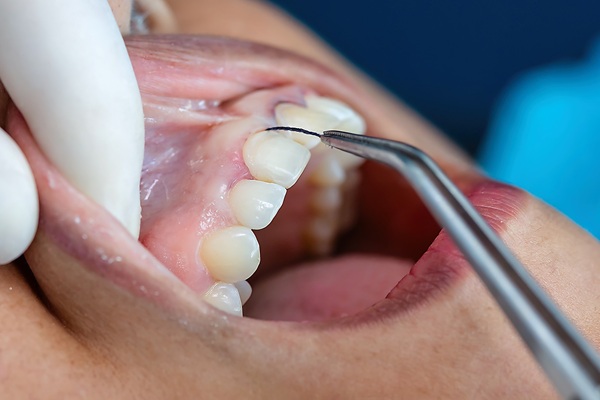Silent and Dangerous: The Impact of Gum Disease on Your Health

Gum disease is a common yet often overlooked condition that affects millions of adults worldwide. It begins subtly, often without noticeable pain, making it a silent threat to both oral and overall health. Left untreated, gum disease can progress from mild inflammation to a severe infection, potentially leading to tooth loss and contributing to other serious health complications. Understanding the risks and signs of gum disease is essential for maintaining a healthy smile and overall well-being.
Understanding gum disease
Gum disease, also known as periodontal disease, occurs when bacteria in dental plaque irritate the gums. The earliest stage, gingivitis, causes redness, swelling, and bleeding during brushing or flossing. Without treatment, gingivitis can progress to periodontitis, where the infection damages the soft tissue and bone that support the teeth. Periodontitis can lead to loose teeth, receding gums, and eventual tooth loss.
How gum disease affects overall health
Research indicates that gum disease is not limited to oral health. Inflammation and bacteria associated with gum disease can enter the bloodstream, affecting other parts of the body. Studies have linked gum disease to cardiovascular disease, diabetes, respiratory infections, and complications during pregnancy. Managing gum disease not only protects teeth and gums but may also reduce the risk of these systemic health issues.
Signs and risk factors
Recognizing the warning signs of gum disease is crucial for early intervention. Common indicators include:
- Bleeding gums: Bleeding during brushing or flossing often signals early gum disease.
- Red or swollen gums: Inflammation or puffiness around the teeth is a common symptom.
- Persistent bad breath: Ongoing halitosis can indicate bacterial buildup below the gumline.
- Loose teeth: Advanced gum disease can weaken supporting structures, causing tooth mobility.
Certain factors increase the risk of developing gum disease, including smoking, poor oral hygiene, genetics, hormonal changes, and chronic illnesses such as diabetes. Regular dental visits help identify these risks and provide opportunities for preventive care.
Prevention and treatment
Preventing and managing gum disease begins with daily oral hygiene. Brushing at least twice a day, flossing daily, and using an antiseptic mouthwash help reduce plaque buildup. Routine dental exams and professional cleanings enable dentists to identify early signs of gum disease and implement effective treatment strategies.
For mild cases, non-surgical treatments such as scaling and root planing can remove plaque and tartar that has accumulated below the gumline. More advanced cases may require surgical interventions, including flap surgery or bone grafts, to restore damaged tissue. Timely intervention is critical to prevent permanent damage and maintain oral health.
Get treated for gum disease at our Northridge office
Gum disease is a silent and dangerous condition that can have significant consequences beyond the mouth. Recognizing the signs, understanding risk factors, and maintaining regular dental care are key to preventing its progression. By taking proactive steps, patients can protect their teeth, gums, and overall health, reducing the risk of complications associated with gum disease. For more information or to schedule an appointment, call our office at (818) 739-8955.
To schedule a consultation, request an appointment on our website at https://www.mirrorcosmeticdentistry.com or call Mirror Cosmetic Dentistry at (818) 739-8955 for an appointment in our Northridge office.
Check out what others are saying about our dental services on Yelp: Gum Disease in Northridge, CA.
Related Posts
Laser dentistry is a relatively young concept that can target diseased soft tissue and improve the health of gums, jawbone, and more. Dental lasers are approved by the Food and Drug Administration (FDA), and the risks of the procedure are minimal. Subsequently, dentists often recommend laser dentistry for deep dental cleaning procedures. A routine dental cleaning…
Many people wonder when to call an emergency dentist for cuts, tears, or bites to the lips, cheeks, tongue, and gums. While these soft tissue injuries can look scary, prompt dental care can protect comfort, reduce infection risk, and save teeth. A general or family dentist who handles urgent cases can guide this care right…
A denture repair is needed when a set of dentures becomes damaged. Damage can occur from simply dropping the appliance or even eating something too hard that may produce a crack or fracture. However, almost always, a broken denture piece is unexpected, which can make the next step intimidating. Understanding what to do when a…
A family dentist offers comprehensive care to individuals of all ages, making them an ideal option for older adults looking to maintain good oral health. As people age, their dental needs evolve, and regular visits to a family dentist can help address specific issues that arise in later years. Older adults often face unique dental…
